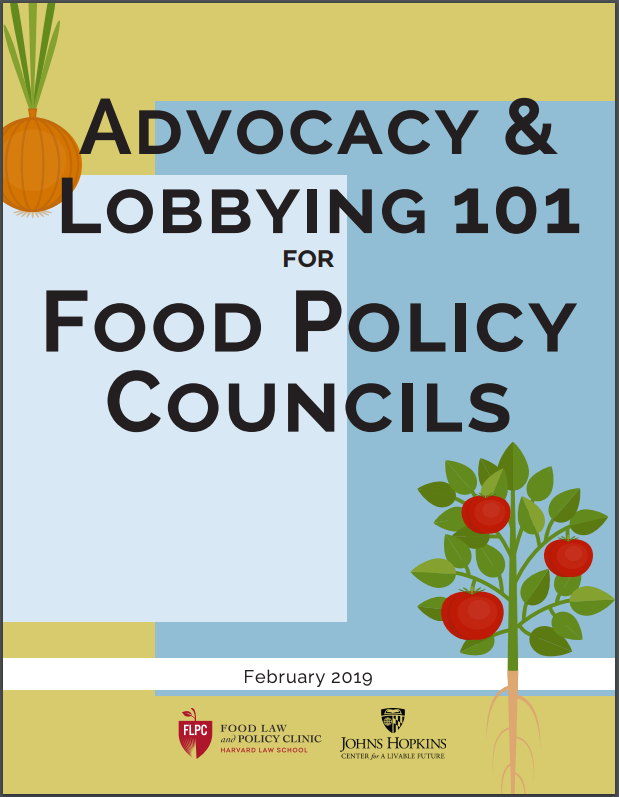The Harvard Law School Food Law and Policy Clinic (FLPC) and the Johns Hopkins Center for a Livable Future (CLF) have released a new resource for food policy councils and others working to change the food system. “Advocacy & Lobbying 101 for Food Policy Councils” was created to equip food policy councils in the U.S. with legal information necessary to know how they are allowed to influence policy decisions by local, state, and federal government.
A recent survey found that the vast majority of food policy councils are actively engaged in advocacy work. Advocacy activities involving interactions with government policymakers to shape specific legislation may require adherence to specific laws and regulations known as “lobbying” laws.
“Creating change in the food system requires educating, organizing, and persuading others that change is necessary and feasible,” said Anne Palmer, program director at CLF. “This guide is intended to assist councils to understand how lobbying laws apply to their work, and how to proceed legally when attempting to influence government policymakers.”
The guide discusses what it means to lobby the government, explains how lobbying differs from general advocacy work, and addresses topics that every food policy council should consider before engaging in advocacy or lobbying. It also examines how the different organizational structures of councils affect what they may do to lobby and provides case studies to illustrate how councils have successfully and legally influenced government policy.
“A food policy council should not shy away from trying to influence government policy simply because these laws exist,” said Emily Broad Leib, director of the Harvard Law School Food Law and Policy Clinic. “We hope this guide empowers councils to confidently navigate applicable state and federal lobbying laws—they will learn that much work on policy issues is not restricted because it is considered advocacy, not lobbying, and may even realize that their opportunities to lobby legally are far greater than previously thought.”
